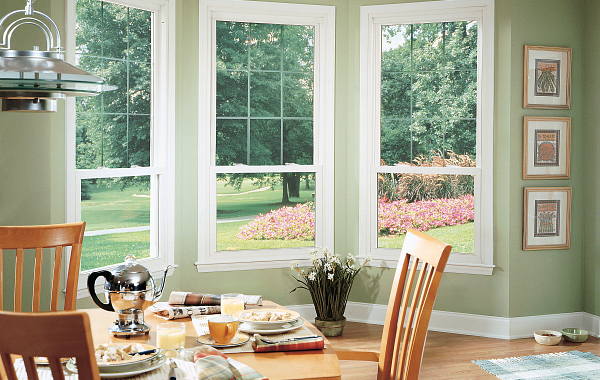If you weren’t already aware, windows are some of the most important architectural elements of your home. They influence everything from curb appeal to energy efficiency, so it’s extremely important to ensure that they are performing optimally. But when should you start contemplating a window replacement? You’ve come to the right place! In this article, we’re helping you understand if and when you need to consider an upgrade.

How Often Do You Need to Replace Windows?
While today’s window manufacturers know how to design a high-performing window that stands the test of time, no window is going to last forever. An average window that’s free of damage has an average lifespan of 15 to 20 years. Keep in mind that the window material, as well as the installation, will influence this lifespan. Many manufacturers will help you figure out this estimated timeframe by providing warranties. All that said, if you know your home windows have aged past their expected lifetime, you should have a contractor come out for an inspection and consider budgeting for replacements.
Thankfully, some windows are designed to last longer than the rest. At the top of the pack, comes premium Preservation Windows, which are built with sturdy vinyl frames, IntegraWeld technology, and other advanced features that provide them with superior durability and longevity. Plus, these windows come with a Limited Lifetime Warranty to stand behind their strength.
Signs It’s Time to Replace Your Windows
Life happens; sometimes your home windows won’t make it to their expected lifetime date due to accidental damage or subpar workmanship during the installation. In any case, if you observe one or more of the following signs, you can confidently conclude that it’s time to replace your windows:
Water Damage
Decayed window frames and/or water stains along the bordering walls of your windows are signs of damage. Over time, extreme weather and use can weaken the insulating seams of your windows—exposing them to the elements. Look for cracks, chipping, mold, and broken glass. All signs that your windows need to be replaced.
Drafts & High Utility Bills
Poorly insulated windows can affect the energy efficiency of your home. Whether it’s due to weakened seals, damaged frames, or thin glass, a faulty window can gradually increase your electric and gas bills each month.
Storm Damage
If you’ve recently survived a severe storm or you live in an area with weather extremes, you may consider inspecting your windows more frequently than the average homeowner. The damaging effects of storms can take a toll on your windows over time, causing cracks along the frames.
Faulty Operation
Your windows should be able to open and close without getting stuck. If this inconvenience has become the norm in your home, you should consider upgrading to an operable design that works for your needs.
We hope these answers help you feel more comfortable judging your existing windows’ performance and overall quality. If you decide that it’s time for replacements, consider Preservation Windows. We’ll help you find an authorized dealer in your location.